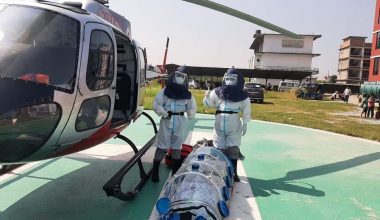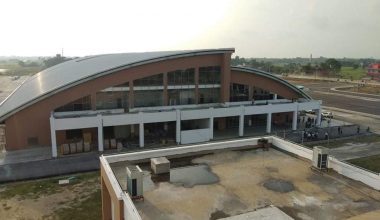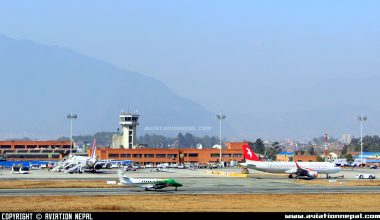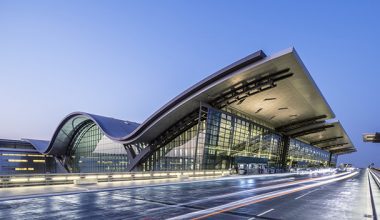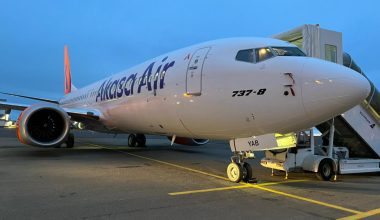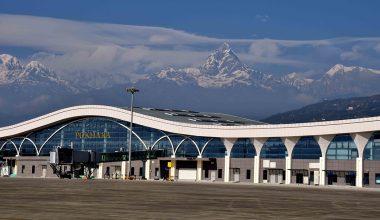Korean Air, the flag carrier of South Korea advances to retire the Airbus A380 fleet within five years. The carrier intends to retire the iconic wide-body fleet of 10 Airbus A380 passenger jets within the next five years. As a part of cost-cutting and maintaining efficacy amid a devastating pandemic, Korean Air moves along to stop flying these superjumbo jets.

The carrier is also planning to retire the Boeing B747-8I fleet within ten years. Korean Air is one of the airlines owing the latest generation of planes (B747-8) alongside Air China and Lufthansa. Korean Air is engrossed in the announced acquisition of domestic competitor Asiana Airlines Inc. and in the mid-phase of completing a $1.6 billion acquisition of it.
Also Read: Asiana A330 and Turkish A321 Collide at Istanbul Airport
Korean Air is embarking on a fleet renewal through the gradual retirement of iconic quad engine aircraft Airbus A380 and Boeing B747-8I from the airline fleet within 5 and 10 years. Walter Cho, CEO of Korean Air, confirmed the future of the Airbus A380. As Korean Air and Asiana Airlines are looking forward to being merged, A380s have an expiry date on the fleet of Korean Airlines. The CEO also stated that the Boeing 747-8I fleet would follow the suit within 10years, although they will become Korean Air’s new flagship aircraft for five years after the A380s leave the fleet.

Currently, Korean Air owns a fleet of nine Boeing 747-8s, delivered between 2012 and 2017. By the time they retire ten years from now, i.e., 2031, some of these will nearly be 20 years old. Korean Air took the delivery of A380s between 2011 and 2016. So when they retire in 5 years from now, i.e., 2026, they’d be nearly 10-15 years old. The four-engine fleets still have some time left in them, but the rebounding of air traffic demand is very slow in Asia, as many countries struggle through the surge of the third wave of the protracted pandemic.

The retirement of superjumbos is not applicable to 10 of Korean Air’s A380s but six such aircraft owned by Asiana Airlines, as Korean Air proceeds $2.2 billion takeovers of Asiana Airlines. A380 fleet of Asiana Airlines will join that of Korean Air by 2024. Korean Air’s takeover of the beleaguered airline is subject to approval by Korean Fair Trade Commission and antitrust regulators in nine other countries.
A combined fleet of giant aircraft is likely retirement is set to occur upon the expiry of lease contracts on both superjumbo jets.
Impact of Coronavirus in Korean Air fleet
The largest full-service network carrier of South Korea flew A380 and Boeing B747 jets on long-haul routes so as to benefit from the economies of scale, but the massive drop in air demand and passenger revenue loss shrank the airline revenue as they were grounded in the tarmac amid global coronavirus pandemic. As the health crisis continued to wreak airline havoc, the climate wasn’t justifiable to keep these planes in the skies.

Both Airbus A380 and Boeing B747 will disappear from Korean Air’s skies due to their size and cost to operate them seamlessly. Korean Air intends to clean its house with aircraft types that ensure passenger comfort and relief for their bottom lines. So the giant A380 will be grounded as novel coronavirus continues to turn the aviation industry upside down. Looking at the global aviation scenario, not only Korean Air but numerous airlines have retired A380s to account for the dwindling passenger demand. In fact, the marmite of aviation, Airbus A380, maybe the largest casualty of the coronavirus-lead airline industry downtown as many airlines like Lufthansa, Qantas, Malaysia Airlines have disposed of off A380 fleets because they don’t fit future plans.
No long-haul first-class offering by Korean Air?
Korean Air has ended first-class offerings on many planes like 777s, 787s, A330s, except on A380s and B747-8s. Elite passengers’ shift to private flying has accelerated the decline of first-class products in airlines. On the one hand, small aircraft can’t accommodate first class, and on the other hand, highly affluent people are getting over qualms regarding private flying as they shy away from traveling in mass. As there’s still a decade till the retirement of 747-8s, Korean Air’s order for other aircraft is in the realm of entirely speculative to welcome first-class travelers.
Future fleets
The future fleet of Korean Air will be twin-engine jets like Boeing 777-300 ER, Boeing 787 Dreamliner. Cho presented his thought that there may be no large demand for new aircraft for some period, given the slow demand recovery.

